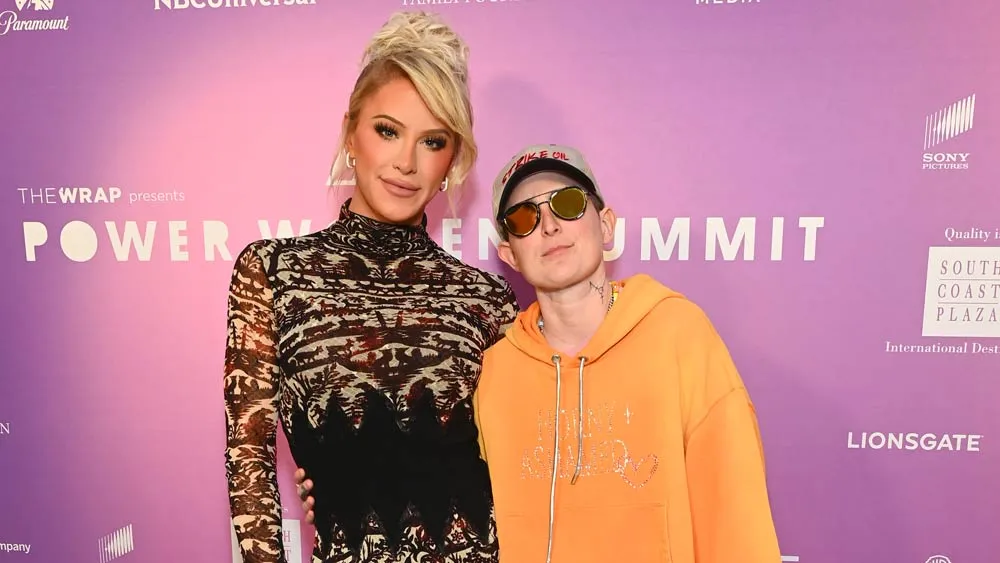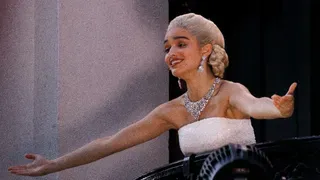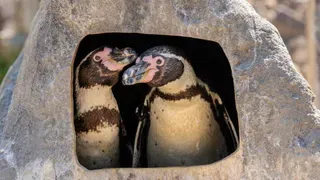March 1, 2018
The Misfit's Manifesto
Kyle Thomas Smith READ TIME: 5 MIN.
Do you consider yourself an anomaly? Looking for a no-bullshit ray of hope? Look no further than Lidia Yuknavitch's "The Misfit's Manifesto."
Yuknavitch's TED Talk, "The Beauty of Being a Misfit," has racked up nearly 330,000 views on YouTube and now TEDBooks (a division of Simon & Schuster) has released "The Misfit's Manifesto," where Yuknavitch enlarges upon her own life story and her hard-won conviction that misfits exist on "the edges of culture... where new and beautiful meanings are generated."
Yuknavitch was born into an alcoholic/rage-a-holic home where fear and abuse were the order of the day. She was also painfully shy and self-effacing at school but found that she could escape into a whole new world underwater -- a world where, for many hours a day, she could be alone with her thoughts and her imagination -- after joining the swim team, where she made it all the way to Nationals.
Yet hers is not yet another story of an athlete who finds triumph, and a ticket out, through sports. Yuknavitch's athletic talents would prove no match for the dysfunction she faced at home, nor for the abysmally low self-worth she developed as it became more and more apparent to her that, in a fundamental but enigmatic way, she was different from almost everyone else around her and, at least to her own mind, not in a good way.
The rage and alienation that Yuknavitch felt led her to numb out with drugs and alcohol and to run with others who were on a similar path of self-destruction. Yet at the same time, she had also discovered that she had a flair for writing and pursued it with the utmost passion -- a saving grace, for sure, but not a cure-all for the troubles that she was both experiencing and creating in her own life.
When her first child died soon after birth, Yuknavitch hit rock bottom and took to living on the streets with other troubled souls. What she discovered was that "[h]omeless people are some of the most heroic misfits on earth because they start out as us, and they travel to the darkest edges of being and survival." As she goes on to write:
"What I found underneath the overpass were former doctors and lawyers. Straight-A students who took some drastic turn or fall. One former Olympic athlete and several teachers and bankers and yes, a CEO; his wife was killed in an accident involving two drunk drivers -- one of whom was him. Yes, I also found alcoholic and junkies and ex-cons, but they were also combat veterans, single mothers, engineers, pilots and virtuoso musicians. In other words, what I found underneath the overpass was us."
Yuknavitch became a heroin addict during this period, yet she still did not give up on her dream of becoming a writer. When she wasn't hanging out and getting stoned with other misfits, she was reading voraciously with the aid of the public library.
Eventually, Yuknavitch did manage to kick heroin and get off the streets. And though she had failed out of two colleges (and possibly a third, which she says she doesn't want to tell us about even in this otherwise tell-all book), she still managed to go back to school and earn a Ph.D. in English Literature at University of Oregon. She became a professor and published seven books.
Yet, by her own admission, she remains a master of self-sabotage as evidenced by a scenario, described both in her TED Talk and her subsequent book, in which she botched a major fringe benefit of a prestigious award that she won for her short story "The Chronology of Water." A top New York top literary agent offered her representation on the spot, but she did not take the agent up on the offer because she was afraid of success. Yukatism maintains that such defeatism is a common trait among misfits (see the climax of the indelible 1959 British film "The Loneliness of the Long-Distance Runner").
Yuknavitch doesn't lay bare her deepest and darkest self so that we'll feel sorry for her. Rather, through sharing her own trials, she makes an effective case for how misfits are prone to make choices that make no sense to other people or even to themselves. Furthermore, she argues that what looks like the path to ruin is often what brings the misfit on to a road of powerful self-expression.
Yet Yuknavitch does not promise that, once the misfit finds this road of self-expression, they will find their promised land and have a life of no regrets. On the contrary, they will most likely be haunted with deep regrets for the rest of their lives. In Yuknavitch's own words, "My mistakes will live on in me, when I'm doing well, and when I'm diving back down into the depths again. They are as much a part of me as any success or good thing I ever do." Deep and searing regrets are a part of life -- that's just the way it is.
Beyond Yuknavitch's own story, "The Misfit's Manifesto" offers other poignant accounts of life on the fringes, including those from queer authors Melissa Febos, Domi Shoemaker and Zach Ellis. Each account provides an unflinching look at the dangers on the misfit's trail and each elucidates the need for us as a society to understand: Not only that failure and redemption are two sides of the same coin, but that we are all inextricably linked to each other in the great web of life, even to those whose life circumstances are our worst nightmares.
What "The Misfit's Manifesto" could use more of, though, are words of hope and encouragement for the less conspicuous kinds of misfits of the world -- for the square pegs and oddballs who have been fortunate enough to sidestep lives of crime and addiction, but who are also unable to succeed on the world's terms and have been made to feel like total losers for it. There are the Eleanor Rigbys and Laura "Blue Roses" Wingfields, odd birds who never had much luck making friends and either live and die alone or are taken in as charity cases by barely tolerant family members. There are the Vincent Van Goughs, hardworking and sometimes genius creative types who want nothing more than to create beauty, but whose work gets mocked or passed over to the point that they are driven to poverty, insanity and/or suicide. There are also many unwilling misfits, who would like to be more a part of things, who would like to do well at school or work, but who are constantly getting expelled or fired from jobs because they can't keep pace or aren't "the right fit."
Yuknavitch's manifesto speaks more to misfits who, at first flush, seem to have a death wish and actively seek out others who walk the same edge. Yet, when banded together, such misfits can be just as conforming and exclusionary as the beautiful people and the herd that they condemn. Not all misfits are badasses, and their experiences of alienation are just as worthy of exploration.
Nonetheless, "The Misfit's Manifesto" is a brave and compassionate book that will inspire many a black sheep to take heart and know that they hold a valuable place in this world, even if they have fallen through the cracks.
"The Misfit's Manifesto"
by Lidia Yuknavitch
$16.99
TEDBooks
Kyle Thomas Smith is author of the novel 85A (Bascom Hill, 2010). He lives in Brooklyn with his husband and two cats.






